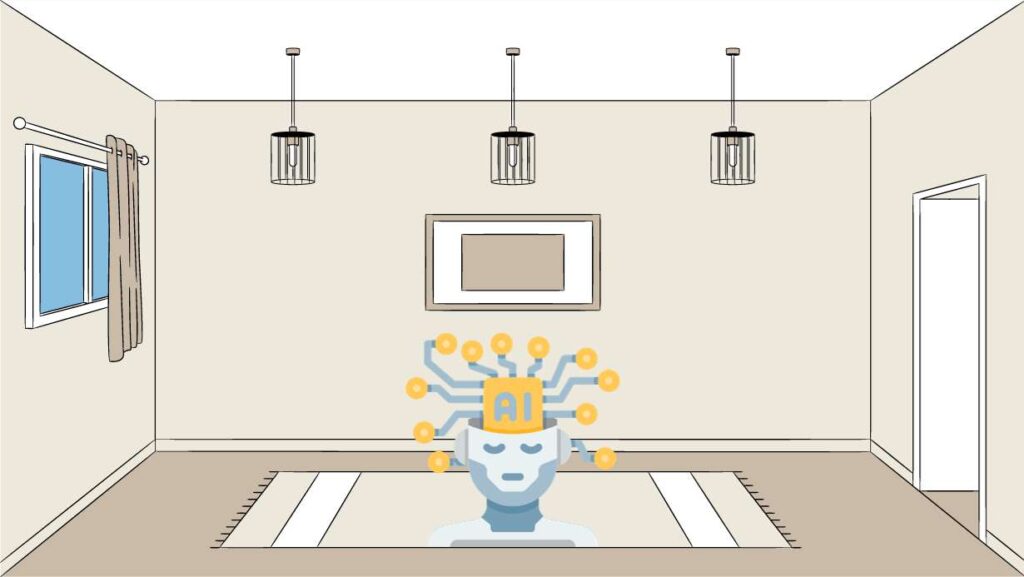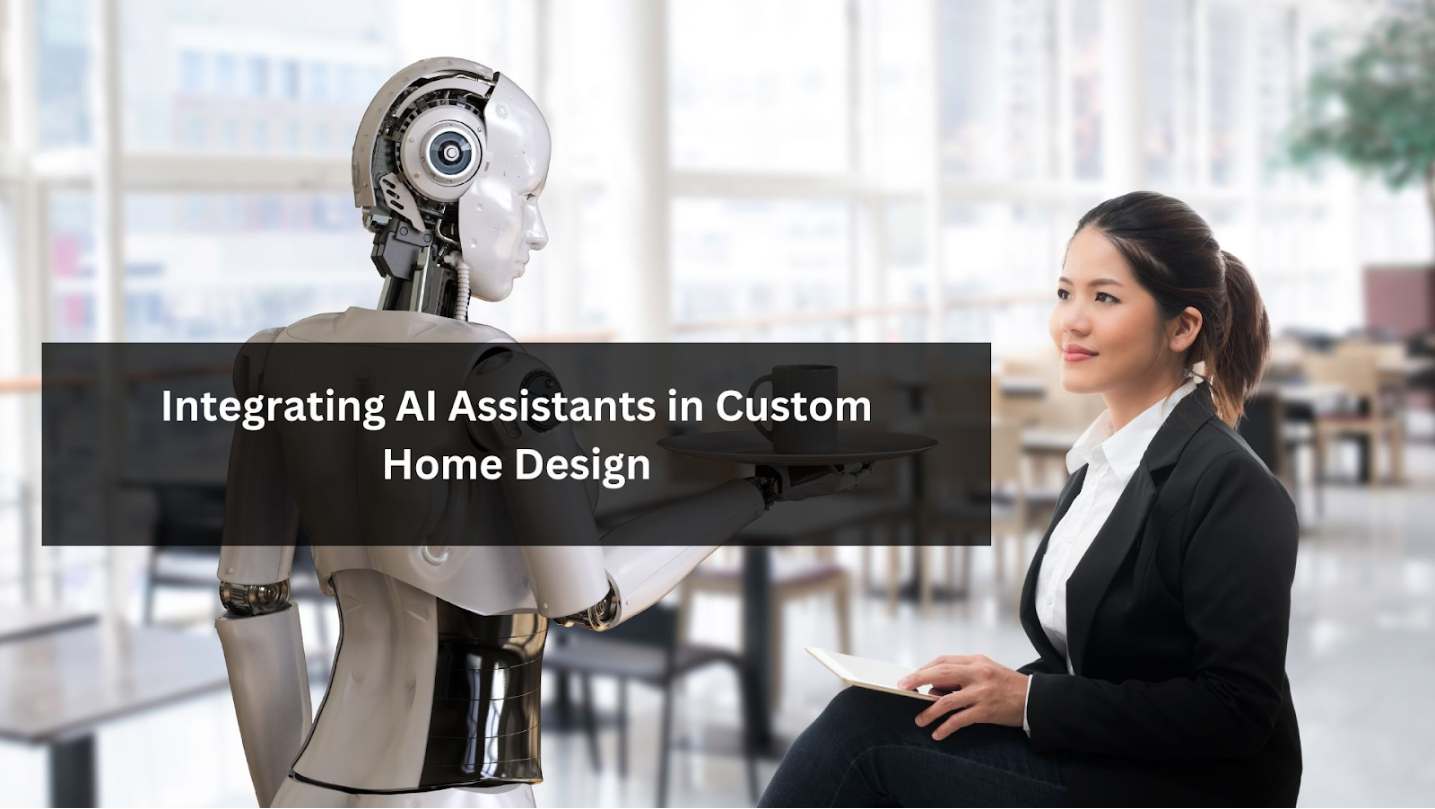AI in Custom Home Design
The home building industry is in the midst of a digital revolution, and AI in custom home design is the driving force behind this transformation. Artificial intelligence can play a pivotal role in streamlining and enhancing every stage of the custom home design process. AI assists in administrative tasks as well as in actual construction. This article explores how AI integration can transform the future of new home construction and interior design.
The Digital Transformation of Home Building
Spending on global construction has surpassed $10 trillion annually and is projected to grow by 4.2% until 2023. The industry is rapidly embracing digital evolution. AI integration optimizes complex processes. It adds value to the project’s life. Yet, the human element remains essential for ensuring quality craftsmanship.
AI should enhance human abilities through automation rather than replacement. Builders like Elk Ridge Custom Homes are leading the way in this digital transformation. They maximize efficiency while maintaining the balance between AI use and human participation.
Creating a Home’s Digital Copy with AI
One groundbreaking application of AI is creating comprehensive digital representations of home builds with the help of AI Cameras. Machine learning algorithms can help in evaluations. They evaluate data like grading measurements, construction timelines, and weather patterns to generate predictive analytics.
For instance, Digs AI converts disorganized build documentation into structured digital models. It enables seamless file sharing between builders, architects, and clients. It tracks progress and identifies risks like permit delays. The automation of manual documentation tasks enables teams to focus on higher-value work.
According to McKinsey, AI-based analytics can potentially reduce project delays by 20-50%. It also lowers rework costs by 10-40% in engineering and construction as AI transforms messy paperwork into accessible digital information. This transformation saves enormous time and cost savings.

Streamlining Bidding and Sourcing with AI
AI is also optimizing procurement processes in construction. DigiBuild uses AI-based software and brings automation. It automates bid collection, supplier onboarding, and inventory management. AI also gives predictive analytics. Insight into analytics provides data-backed recommendations for sourcing materials and approving bids. It ensures hassle-free procurement.
Artificial Neural Networks leverage vast historical data. It predicts risks like cost overruns and delays. It also analyzes influential factors like project size and manager competence. Thus, AI enables more efficient planning and execution. It also promotes sustainability by forecasting realistic timelines and material needs. Thus, it prevents waste.
As AI handles the logistical heavy lifting, builders can focus on core construction tasks. Streamlined sourcing and bidding create cost and time savings. These savings can be transferred to home buyers.
Enhancing Customer Service and Sales through AI
92% of construction firms have embraced AI in 2022. Its integration has enhanced customer service. Smart chatbots now provide instant responses to site visitors. Virtual reality gives remote home buyers interactive 3D walkthroughs.
For instance, AtlasRTX’s AI chatbot delivers real-time support to potential home buyers on AtlasHomes.com. It answers common queries. It also connects site visitors to sales agents for further assistance on demand. By providing 24/7 accessibility, AI-powered chatbots create quality lead-generation opportunities.
AI in the sales department is also bringing efficiency. Home builders must ensure chatbots communicate brand values and complement human agents. Blending AI efficiency with a consultative approach can bolster customer experience and sales.
Prioritizing Safety on Jobsites with AI
While AI brings about operational optimization. Builders have a fundamental duty to uphold workplace safety. Here too, AI lends a hand.
EarthCam’s AI camera technology is a protective shield for workers. It detects workers operating in hazardous zones or without protective gear. It can alert site supervisors immediately. This, allows them to intervene before accidents occur. By continuously monitoring worksites, AI prevents injuries and enhances training.
According to OSHA, one in five worker deaths occurs in construction. AI integration with wearables, video analytics, and equipment sensors dramatically improves safety practices. This ensures safety and security in every construction step.
| Benefits of AI for Jobsite Safety |
| Real-time hazard identification |
| Rapid response to unsafe behavior |
| Proactive accident prevention |
| Enhanced worker training |
| Continuous compliance monitoring |
Simplifying Interior Design Choices Using AI
AI is upgrading the interior design aspect of home building. Planner 5D’s Design Generator allows users to create multiple 3D interior design mockups in seconds.
The AI assistant can analyze various aspects. These aspects involve floor plans, furniture preferences, style inspirations, and spatial requirements. It helps in generating design visualizations. This enables seamless collaboration between architects, interior designers, and homeowners.

Using data points and recognizing patterns, AI designs spaces with personal tastes and the laws of physics. This unlocks greater creativity in interior design.
The Future of Smart Home Tech with AI
The hype around smart home technology has been building for years. AI and machine learning integration are inevitable to achieve true home automation. AI assistants must be capable of contextual interaction to provide maximum convenience.
Virtual assistants like Alexa and Google Home have gained widespread adoption. However, most functions still require voice commands. Truly intelligent home systems work automatically and as per human choices. They should proactively adjust lighting, temperature, and appliance usage based on human behavior and preferences. AI will be the driving force to move smart homes from novelty to necessity.
Prewiring homes during building is crucial for the seamless integration of systems. AI assistants in the future can grow more sophisticated. Homes designed with AI help will evolve into fully automated and personalized spaces. It will enhance the quality of living.
Conclusion
In a nutshell, technology is introducing evolution in every field. AI influences home building in every way. It has a direct impact on sales as well as on home design. However, preserving craftsmanship and human oversight remains vital. AI should augment potential – not override it. With prudent integration, homebuilders can shape the future with their values intact. It can unleash greater success through automation.
Evaluate areas in your home-building operations that can benefit from AI integration. With careful implementation, it can bring advancement. It keeps the end consumer experience a priority. Thus, AI can help shape the future of your business.
Frequently Asked Questions (FAQs)

How does AI ensure the safety of workers on construction sites?
AI continuously monitors worksites through video and wearables. It identifies hazards in real-time. This allows supervisors to prevent accidents by intervening promptly.
Can AI truly replace the human touch in the home-building process?
AI provides optimization. However, the human element is irreplaceable. It ensures quality workmanship. AI should be integrated carefully to enhance human capabilities, not to remove them.
How is AI transforming interior design for custom homes?
AI tools like Planner 5D’s Design Generator allow designers, architects, and clients to collaborate efficiently. It is able to generate multiple design mockups digitally in seconds. This unlocks greater creativity.
See Also: Energy Conservation: 15 Simple Ways to Save Energy at Home










